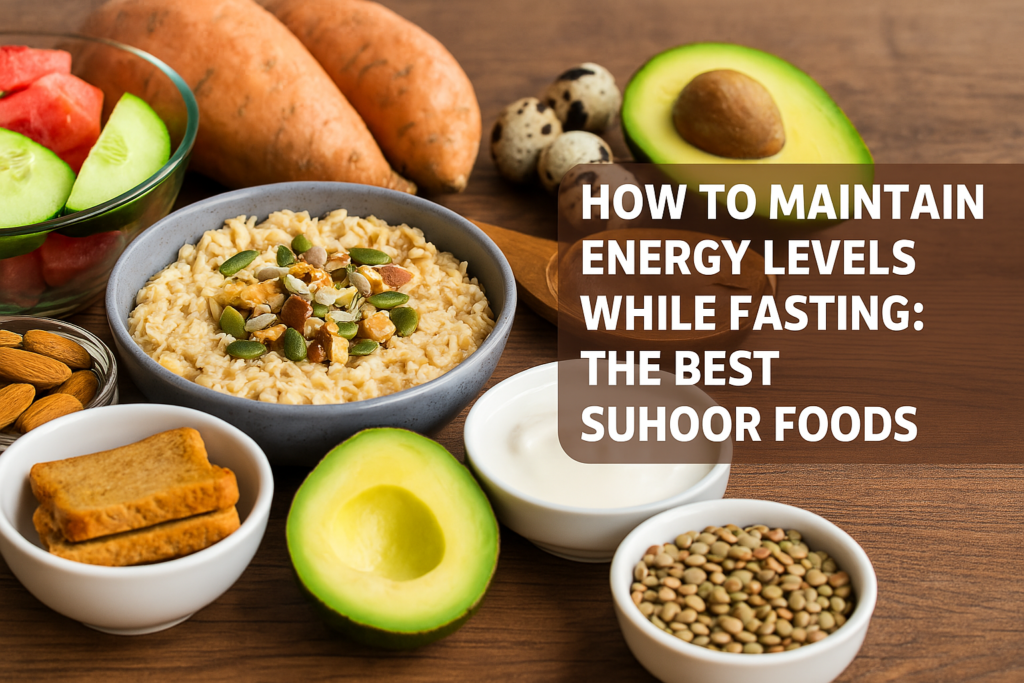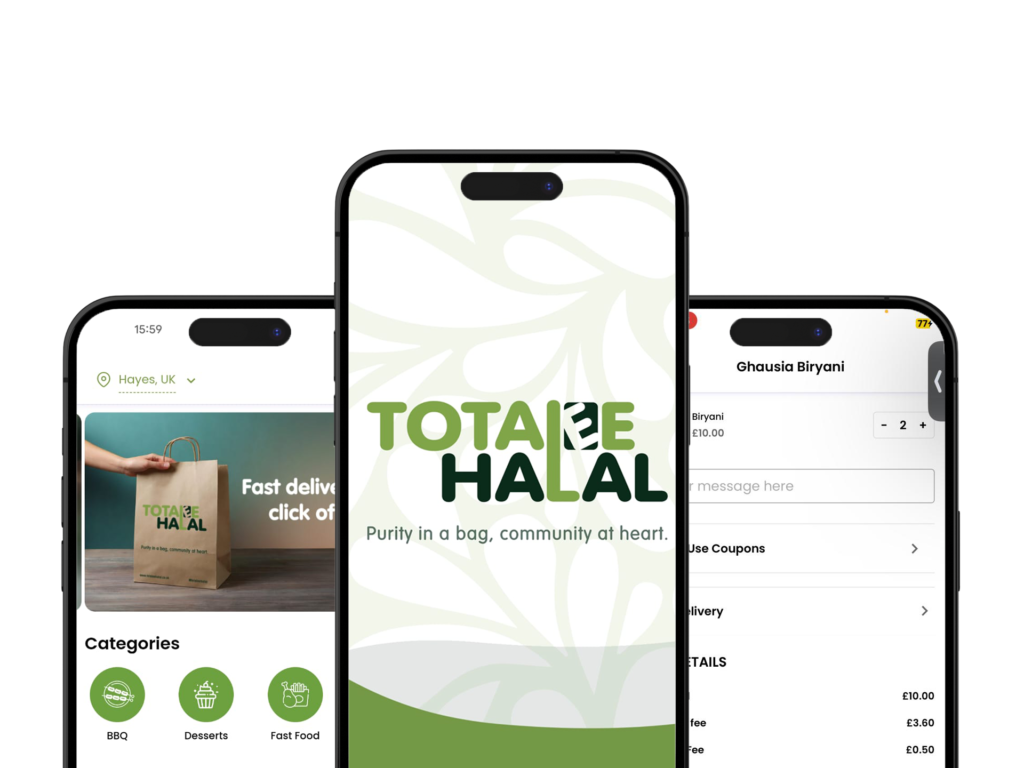How to Maintain Energy Levels While Fasting: The Best Suhoor Foods
Fasting during Ramadan is not only a spiritual experience but also really good for your health, so when we don’t consume food for long hours, it can take a toll on our body and that is why during Ramadan we should pay close attention to our diet to stay energized throughout the day. Eating the right food during Suhoor (the pre-dawn meal) is essential for sustaining energy levels. The key to a fulfilling and effective fast lies in choosing the right foods that provide long-lasting energy, hydration, and essential nutrients. Here’s how you can fuel your body the right way during Suhoor.
Why Suhoor is Important
Suhoor is often overlooked, but Suhoor is a sunnah of the Prophet Muhammad (PBUH) and it plays a crucial role during Ramadan. Even if you don’t like eating early in the morning, it is highly encouraged to eat something, it could be as small as eating a date and drinking water. It helps maintain stamina, focus, and hydration while fasting. Skipping Suhoor may lead to fatigue, dizziness, and difficulty concentrating. A well-balanced Suhoor keeps you fuller for longer and prevents an energy crash before Iftar (the evening meal).
Best Suhoor Foods for Lasting Energy
To stay energized throughout the day, it’s essential to focus on Fibre rich, packed with nutrients and slow-digesting foods. Here’s what you should include:
1. Complex Carbohydrates for Sustained Energy
Carbohydrates are the body’s main source of energy. However, choosing the right type of carbs makes all the difference.
Whole Grains – Whole grains like Oats, bread, Quinoa and brown rice keep you full for hours because of their high fibre content that promotes satiety.
Legumes –Legumes are high in protein and fibre and also slow down digestion which means that it stays in your stomach for longer, keeping you fuller for longer. Lentils, chickpeas, and beans are some of the foods you can consume during suhoor.
Sweet Potatoes – A great alternative to refined carbs, packed with fiber and essential vitamins.
Pro Tip: Start your Suhoor with a bowl of oatmeal topped with nuts and seeds for a steady energy boost.
2. Protein-packed foods for Muscle Strength
Protein helps in providing energy, repairing muscle, boosts metabolism, and also keeping you fuller for longer making you less hungry.
Eggs – Egg is one of the best sources of proteins, it contains all 9 amino acids, vitamins, and minerals and keeps you full for longer.
Greek Yogurt – Greek yogurt contains twice as much proteins and probiotics than regular yogurt, it aids digestion , improves heart health and provides sustained energy.
Lean Meats & Fish – Chicken, turkey, and salmon provide high-quality protein and essential fatty acids.
Pro Tip: A bowl of Greek yogurt topped with honey, fruits and nuts is a great Suhoor choice!
3. Healthy Fats
Healthy fats provide long-lasting energy and help in nutrient absorption.
Avocados – Rich in monounsaturated fats and fiber, keeping you full and energized.
Nuts & Seeds – Almonds, walnuts, chia seeds, and flaxseeds offer essential omega-3 fatty acids.
Olive Oil & Coconut Oil – Healthy oils that support brain function and energy levels.
Pro Tip: Spread almond butter on whole-grain toast or add chia seeds to your smoothie for an energy boost.
4. Hydrating Foods to Prevent Dehydration
Dehydration can cause fatigue, headaches, and dizziness. Consuming hydrating foods during Suhoor can help retain water in your body.
Watermelon & Cucumber – Water rich foods have essential nutrients and the high water content in them helps keep you hydrated.
Coconut Water – Coconut water is a good source of several nutrients, it’s a natural electrolyte-rich drink, and the electrolytes maintain proper fluid balance which prevents dehydration.
Milk– Milk is a good source of protein and if eaten during Suhoor it’s a great choice.
Pro Tip: Avoid salty and processed foods, as they can cause water retention and dehydration.
What to Avoid at Suhoor
While some foods may seem filling, they can actually lead to energy crashes, dehydration, or bloating.
Here are some foods to avoid:
- Processed & Fried Foods – Cause bloating and sluggishness.
- Sugary Cereals & Pastries – Lead to rapid blood sugar spikes and crashes.
- Salty Foods – Increase thirst and dehydration.
- Caffeinated Drinks – Tea and coffee can cause dehydration.
- Tips for a Healthy Suhoor Routine
- Drink Plenty of Water – Aim for at least 2-3 glasses at Suhoor.
- Eat Slowly – Give your body time to digest and recognize fullness.
- Plan Ahead – Prepare your Suhoor meal in advance to avoid last-minute unhealthy choices.
- Listen to Your Body – Eat foods that make you feel good and energized.
Final Thoughts
A well-planned Suhoor ensures you stay active, focused, and refreshed throughout the day. Prioritize whole, nutrient-dense foods and avoid processed options that drain your energy.
By making mindful choices, you can experience a healthy and fulfilling Ramadan with better energy throughout the day.





